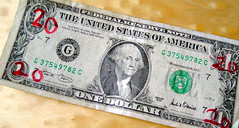
Here’re some stunning pics of an old Russian sub base in Balaklava, Ukraine . Some description:
Until the collapse of the Soviet Union in 1991 Balaklava was one of the most secret towns in Russia. 10km south eas of Sevastopol on the Black Sea Coast, this small town was the home to a Nuclear Submarine Base.
And:
Almost the entire population of Balaklava at the time worked at the Base, even family members could not visit the town of Balaklava without good reason and identification. The base remained operational after the collapse of the Soviet Union in 1991 until 1993 when the decommissioning process started and the warheads and low yield torpedos were removed. Then in 1996 the last Russian Submarine left the Base, and now you can go on Guided tours round the Cannel System, Base and small Museum, which is now housed in the old weapons stowage hangers deep inside the hillside.
(Via.)








